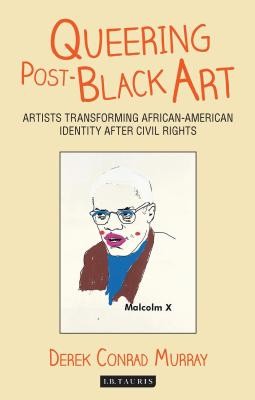
- We will send in 10–14 business days.
- Author: Derek Conrad Murray
- Publisher: I. B. Tauris & Company
- ISBN-10: 1784532878
- ISBN-13: 9781784532871
- Format: 13.7 x 21.3 x 2 cm, softcover
- Language: English
- SAVE -10% with code: EXTRA
Reviews
Description
What impact do sexual politics and queer identities have on the understanding of 'blackness' as a set of visual, cultural and intellectual concerns? In Queering Post-Black Art, Derek Conrad Murray argues that the rise of female, gay and lesbian artists as legitimate African-American creative voices is essential to the development of black art. He considers iconic works by artists including Glenn Ligon, Kehinde Wiley, Mickalene Thomas and Kalup Linzy, which question whether it is possible for blackness to evade its ideologically over-determined cultural legibility. In their own unique, often satirical way, a new generation of contemporary African American artists represent the ever-evolving sexual and gender politics that have come to define the highly controversial notion of 'post-black' art. First coined in 2001, the term 'post-black' resonated because it articulated the frustrations of young African-American artists around notions of identity and belonging that they perceived to be stifling, reductive and exclusionary. Since then, these artists have begun to conceive an idea of blackness that is beyond marginalization and sexual discrimination.
EXTRA 10 % discount with code: EXTRA
The promotion ends in 19d.05:45:10
The discount code is valid when purchasing from 10 €. Discounts do not stack.
- Author: Derek Conrad Murray
- Publisher: I. B. Tauris & Company
- ISBN-10: 1784532878
- ISBN-13: 9781784532871
- Format: 13.7 x 21.3 x 2 cm, softcover
- Language: English English
What impact do sexual politics and queer identities have on the understanding of 'blackness' as a set of visual, cultural and intellectual concerns? In Queering Post-Black Art, Derek Conrad Murray argues that the rise of female, gay and lesbian artists as legitimate African-American creative voices is essential to the development of black art. He considers iconic works by artists including Glenn Ligon, Kehinde Wiley, Mickalene Thomas and Kalup Linzy, which question whether it is possible for blackness to evade its ideologically over-determined cultural legibility. In their own unique, often satirical way, a new generation of contemporary African American artists represent the ever-evolving sexual and gender politics that have come to define the highly controversial notion of 'post-black' art. First coined in 2001, the term 'post-black' resonated because it articulated the frustrations of young African-American artists around notions of identity and belonging that they perceived to be stifling, reductive and exclusionary. Since then, these artists have begun to conceive an idea of blackness that is beyond marginalization and sexual discrimination.


Reviews